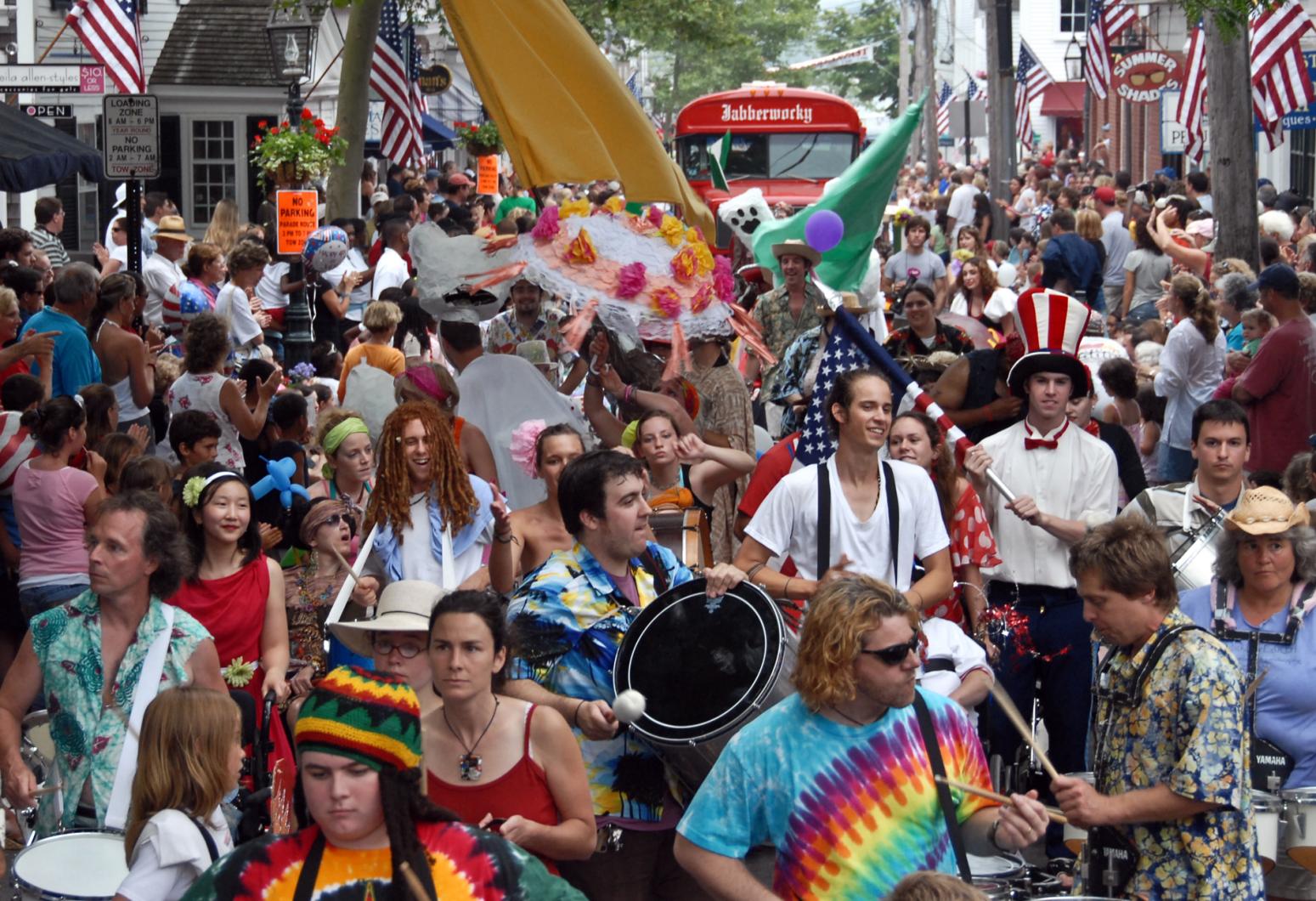As children, we anticipated the July Fourth excursion to Edgartown to take in that rare and wonderful “blink-and-you-missed-it” parade to be followed by hot dogs, ice cream and fireworks. The parade back then was all about civic and national pride, flags and fire trucks, Girl Scouts, the Edgartown Boys’ Club Marching Band, a convertible sporting prom queen and court in pastel confection, civic organization representatives wearing uniforms or insignias identifying their affiliations, all celebrating our nation’s birthday and heralding the beginning of summer.
Participant to spectator ratios are probably about the same, though the once primarily civic parade has grown to include additional cultural entertainments, church groups, our Brazilian community, and even “floats” advertising family businesses. The sensory overload of the Mardi Gras atmosphere prevails from exuberant beginning to weary end of the three-mile route, filling our eyes with color and movement, the noise thrumming our sternums and rattling the clapboards of Edgartown’s lovely homes. Babies ride shoulders, elders in rockers wave to the crowds, kids cruise on bikes and skateboards, Jabberwocky campers prance and enchant, people carry signs, bunting twines porch rails and balconies, flags snap in the wind.
The friendly mob cheers and roars its delight as friends and neighbors stroll the streets in a formless gaggle. And then, drum rolls announce our local veterans as they march by in parade dress. The heart skips a beat, and we recall the meaning of the day and the sacrifices of each generation that underscore this celebration — including those made by indigenous nations who originally occupied this great land.
Amidst the growth and change of this observance, its most striking aspect remains — the July Fourth parade is the vital and vibrant embodiment of our beloved First Amendment ensuring freedom of peaceable assembly, freedom of religion, freedom of speech.
We are not a perfect nation, but on the Fourth of July our thoughts rest a moment on the evolving dream that is America.
Susan Klein is a professional storyteller and writer who lives in Oak Bluffs. This piece and accompanying photographs by Alan Brigish are taken from the newly published book Martha’s Vineyard Now and Zen, a collection of essays by Ms. Klein and photographs by Mr. Brigish of West Tisbury. They appear here with permission. An interview with author and photographer appears on Page One-B in today’s edition.




Comments
Comment policy »